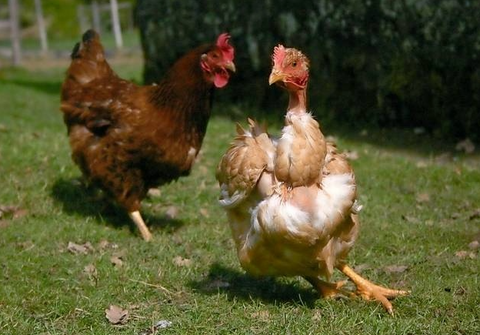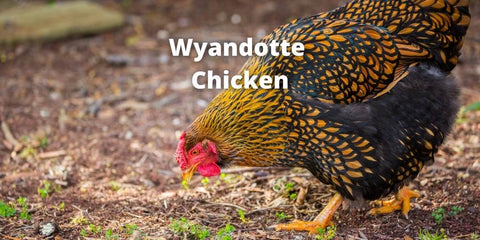🐓 The Pecking Order Explained (and What to Do About Chicken Bullying)
If you’ve spent any time watching your flock, you’ve probably noticed a little drama unfolding: one hen struts up, gives another a sharp peck, and suddenly everyone seems to know their place. That’s not random—it’s called the pecking order.
Understanding this social ladder is key to knowing when your chickens are just being… well, chickens, and when things have crossed the line into bullying.
🥚 What Exactly Is the Pecking Order?
Think of the pecking order as chicken society’s version of a hierarchy. The strongest, healthiest birds climb to the top, while weaker hens settle lower down. It may sound harsh, but it’s nature’s way of ensuring the fittest birds get first dibs on food, water, and prime roosting spots.
A classic example? Feeding time. Top-ranking hens eat first, then the middle ranks, and finally the lowest hens get what’s left. It’s not personal—it’s just chicken politics.
👉 Important: Once the order is set, things usually calm down. If aggression doesn’t stop, that’s no longer pecking order business—it’s bullying.
🐔 Pecking Order vs. Bullying
-
Pecking order behavior: Short-lived, meant to establish rank.
-
Bullying: Ongoing, targeted aggression, often caused by stress, boredom, or overcrowding.
If you notice one hen constantly picking on the same bird—even after ranks are settled—it’s time to intervene.
🚨 Why Do Chickens Peck and Bully?
Here are the most common culprits:
-
Overcrowding: Too many chickens, not enough space = instant drama.
-
Limited resources: Not enough feeders, waterers, or nesting boxes.
-
Overheating: Hot, stuffy coops make everyone cranky.
-
Excessive light: Too much artificial light can overstimulate hens.
-
Poor nutrition: Deficiencies (especially protein or salt) can trigger feather-pecking.
-
Injuries: Wounded hens draw unwanted attention and more pecking.
-
Large flock sizes: Over 30 birds? It’s harder for them to “know their place.”
-
Environmental changes: Moving feeders, adding new birds, or rearranging the coop stresses them out.
-
Boredom: Yes, chickens get bored! And when they do, they turn on each other.
🛠️ How to Prevent Pecking and Bullying
Good flock management is your best defense. Here’s what helps:
-
Give plenty of space (inside and outside the coop).
-
Provide multiple feeders and waterers so timid hens can eat in peace.
-
Keep the coop at a comfortable temperature with shade and ventilation.
-
Stick to natural daylight rhythms (about 16 hours max).
-
Use a balanced feed and always offer fresh water.
-
Remove injured birds until they heal.
-
Keep flocks under 30 birds for harmony.
-
Avoid sudden environmental changes—introduce new setups gradually.
-
Add enrichment (perches, dust baths, treat balls) to fight boredom.
If all else fails, you can separate the bully—or in stubborn cases, rehome them.
🩹 Helping a Chicken That’s Been Bullied
If one of your hens ends up on the wrong end of the peck, here’s what to do:
-
Check the basics: Enough food, water, space, and nutrients?
-
Remove and treat injuries immediately—chickens can’t resist pecking at wounds.
-
Observe the flock: Is one bird the clear instigator?
-
Try separation: Give the bully a “time out” for a few days, then reintroduce.
-
Rehome if necessary: Some hens are just… mean girls. And that’s okay—it happens.
🌟 Final Peck
The pecking order is as natural to chickens as clucking, dust-bathing, or scratching for bugs. It keeps the flock balanced and ensures survival of the fittest. But when things tip into bullying, that’s where you step in as the flock manager.
By keeping your hens comfortable, well-fed, and entertained, you’ll not only prevent most bullying but also enjoy a happy, healthy flock—and a whole lot more eggs. 🥚✨




